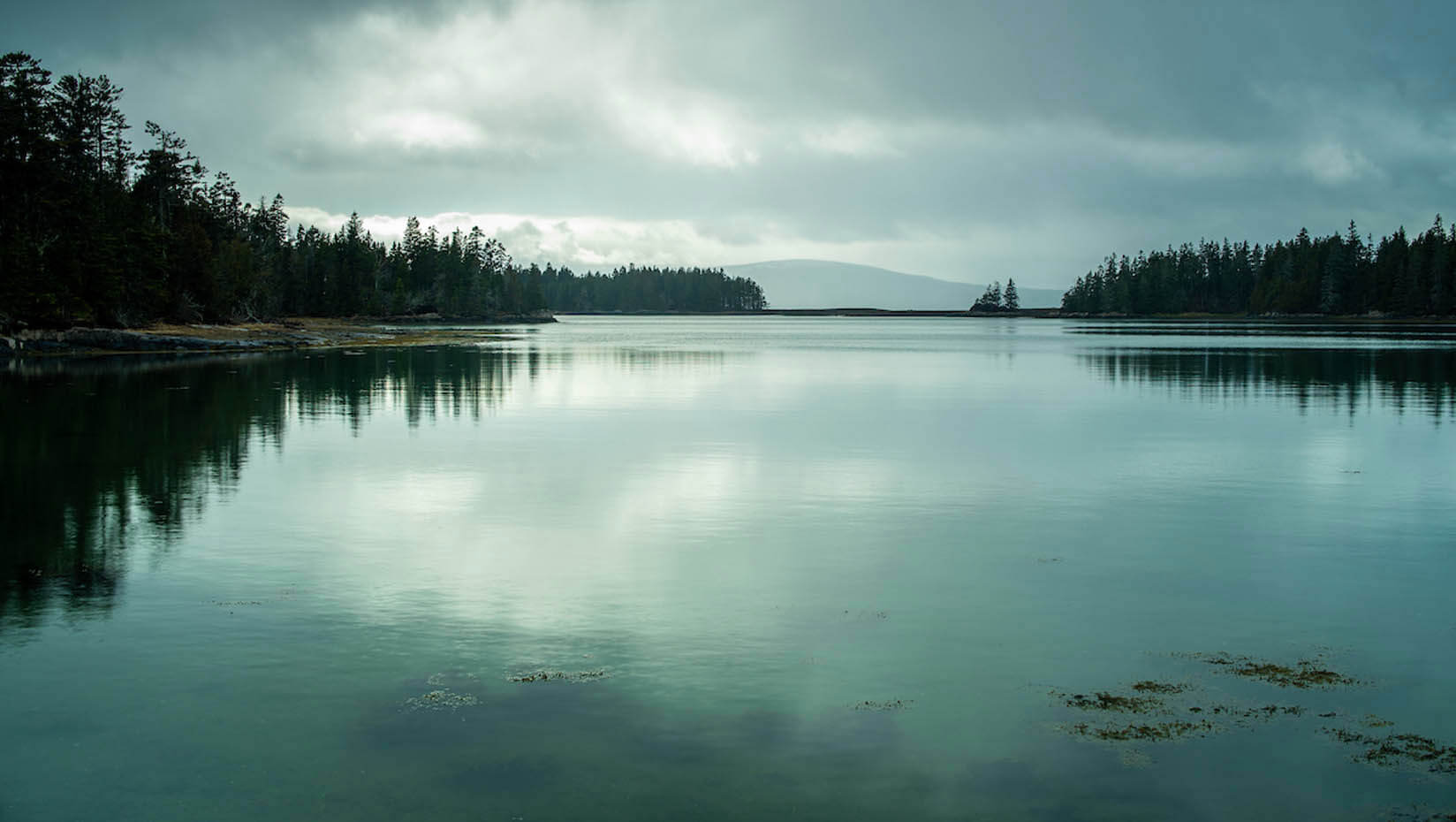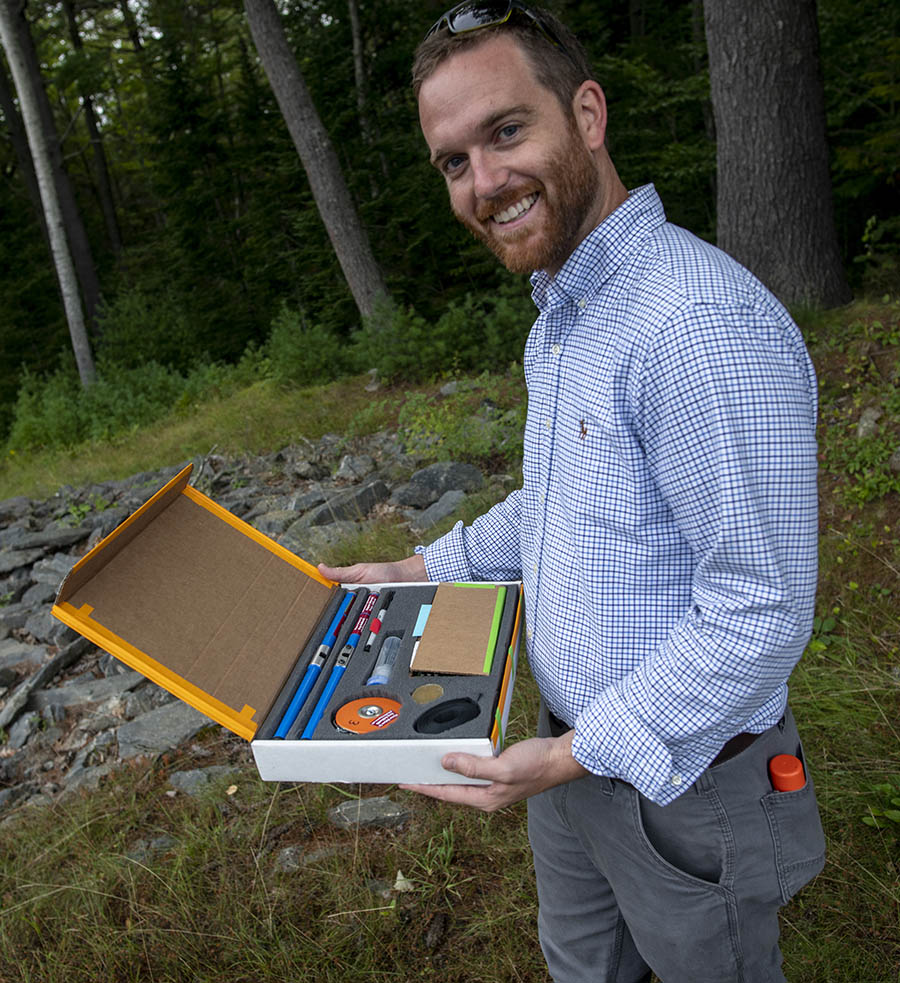
Researchers investigate how climate change affects spruce forests on Maine’s coast
Determining how climate change will affect spruce forests along Maine’s coastline and inspiring new ways to conserve them is the goal of a new study by University of Maine faculty and students.
The U.S. Department of Agriculture (USDA) National Institute of Food and Agriculture (NIFA) awarded $643,848 for the project, led by Jay Wason III, a UMaine assistant professor of forest ecosystem physiology. Master’s students Colby Bosley-Smith, Emily MacDonald and Gregoray McHale will assist with data collection and analysis, as will three undergraduates the research team plans to recruit.
Spruce forests house unique plant and animal communities, store carbon and allow for outdoor recreation, but they also are among the forest types that are the most sensitive to climate change. While Maine’s coastline has provided cool conditions that protected spruce forests from extreme weather for millenia, the land and the surrounding ocean waters have experienced unprecedented temperature spikes that now threaten these climate-sensitive ecosystems.
 Little is known about how a changing climate will reshape coastal spruce forests, but with that knowledge, scientists and conservation groups may be able to determine the right strategies and management practices to promote them.
Little is known about how a changing climate will reshape coastal spruce forests, but with that knowledge, scientists and conservation groups may be able to determine the right strategies and management practices to promote them.
“Spruce forests characterize the eastern coast of Maine. They are a basis of the coastal ecosystem, and a core of local identity, economy and recreation,” says Jane Arbuckle, director of stewardship for the Maine Coast Heritage Trust. “Hopefully, the findings from this study will help us manage these forests in climate resilient ways. We are pleased to partner with the University of Maine in this effort.”
Other UMaine researchers involved in the study are Daniel Hayes, Barbara Wheatland Associate Professor of Geospatial Analysis and Remote Sensing; Shawn Fraver, associate professor of forest ecosystems science; and Nicole Rogers, assistant professor of silviculture.
Through their latest project, Wason and his colleagues aim to identify the factors influencing the location of coastal spruce forests, quantify their sensitivity to climate-based stressors and determine how a warming planet may reduce spruce tree germination, establishment, growth and survival.
Researchers will use drones to collect data from locations throughout the state, from the Casco Bay region to Downeast Maine. With that and satellite data, they will create models that will evaluate where and how climate, topography, management and disturbance regimes have affected coastal spruce distribution and identify the vulnerability of the tree canopy to climate stress.
The team will also conduct detailed forest inventories, install remote sensors for data collection, analyze tree rings and collect soil samples to elucidate the dynamics of coastal spruce forests and learn how climate change has affected them. The group will then plant experimental tree saplings at 10 locations across the state and monitor them to learn how climate in different regions inhibits germination, establishment, growth and survival.
With their findings, the group plans to create fine-scale maps of the current distribution of spruce forests along Maine’s coast and potential locations for conservation, management and restoration. Researchers hope their findings will elucidate the climate stressors that threaten coastal spruce forests and help inform management strategies to prevent their decline.
“These forests are iconic to coastal Maine and provide key ecological and recreational value to the state. This work is a critical step toward promoting their long-term persistence ” Wason says.
In addition to Maine Coast Heritage Trust, the team will work on the project with Acadia National Park, the Blue Hill Heritage Trust, the Downeast Coastal Conservancy, the Maine Chapter of the Nature Conservancy, the New England Forestry Foundation and the Maine Bureau of Parks and Lands.
Contact: Marcus Wolf, 207.581.3721; marcus.wolf@maine.edu
